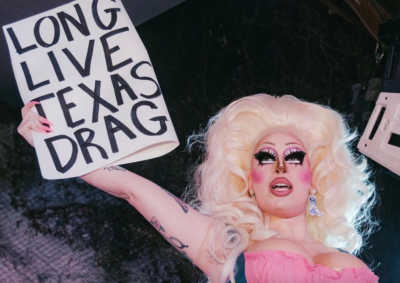A group of LGBTQ+ students are requesting that the Supreme Court overrule a university policy that prohibits drag performances.
Sign up for more LGBTQ+ news and updates at TrueQueer.
In a notable legal dispute, members of the LGBTQ+ community at West Texas A&M University are urgently requesting the Supreme Court to overturn a ban on hosting a charity drag show on campus. This request follows the cancellation of all on-campus drag performances by University President Walter Wendler, who deemed drag as a form of misogyny comparable to blackface. The students assert that this cancellation infringed upon their freedom of speech, leading them to pursue legal action.
The Foundation for Individual Rights and Expression (FIRE), a nonprofit organization advocating for free speech, is representing Spectrum WT, a student-led LGBTQ+ group, in this legal battle. In a letter to the court, FIRE stressed the immediate need for the Supreme Court’s intervention to address what they view as a violation of fundamental First Amendment protections against prior restraint and censorship based on personal beliefs.
The legal dispute began a year ago when Wendler announced the cancellation of Spectrum WT’s drag fundraiser for the Trevor Project, a suicide prevention organization for LGBTQ+ youth. Wendler’s letter described drag as “derisive, divisive, and demoralizing misogyny” and compared it to blackface, justifying the decision to ban on-campus drag performances.
FIRE took legal action against the university, filing a federal lawsuit challenging Wendler’s decision and alleging violations of the students’ right to free speech. Despite the legal challenge, a Texas district court judge denied the students’ request for a temporary restraining order and dismissed a damages claim against Wendler in September 2023. FIRE appealed the decision to the Fifth Circuit Court of Appeals, which declined to expedite the appeal in February.
In response to these legal developments, FIRE and Spectrum WT expressed concerns that the judicial process had not adequately addressed the infringement on the students’ First Amendment rights. They pointed out that Wendler had violated a 2020 campus free speech law that specifically prohibits taking action against student organizations based on their political, religious, philosophical, ideological, or academic viewpoints.
FIRE’s attorney Adam Steinbaugh emphasized the importance of protecting student speech on college campuses, regardless of the expression’s nature. He underscored that college presidents do not have the authority to silence students solely because they disagree with their form of expression, emphasizing the constitutional protection granted to student speech activities.
The outcome of this legal battle remains uncertain as the Supreme Court contemplates whether to intervene in response to the students’ plea for intervention. Recent legal precedents, such as a federal judge overturning Texas’ drag ban and the Supreme Court refusing to reinstate Florida’s anti-drag law, may impact the court’s decision in this case.
As the legal dispute unfolds, it raises significant questions about free speech rights, LGBTQ+ inclusion, and the limitations of campus regulations on expressive activities. The ruling in this case could have broader implications for LGBTQ+ students’ ability to express themselves and hold events that align with their identities and experiences on college campuses.
Follow us on: Facebook for more LGBTQ+ news and updates at TrueQueer.
LGBTQ+
![]()

